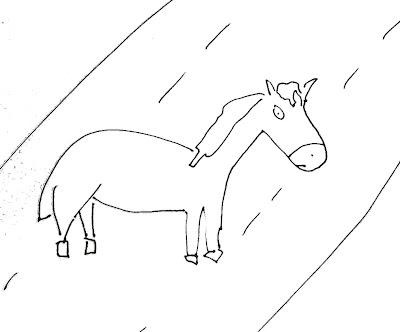Abstract
So, great news! The economy has grown by 0.2% in the last month, which, on a year by year basis, means that the UK economy has grown by 0.7% over the last year. Larry Elliott, The Guardian's economics editor, says it's a "bad number" and someone else from somewhere else said "it's a bit scary", then he shouted "Greece" really loud until everyone else looked scared. Louise Pompingdon-Thyme, Stock Analyst for DFRT Partners, told us this morning that the City's attention is firmly set on the drop in the share price of Blighty but commented that the FTSE 100 is currently 15 points higher at 5940, but this could swiftly change once the GDP figures which tell us that we're not Greece get released. Elsewhere, the Square Mile is concerned by the international outlook, but remains confident that the United States will reach a deal over its debt ceiling and that Greece will get new quantitative tiling done in its bathroom. Analysts who wanted to get on television this morning told us that one-off factors such as Pippa Middleton's bottom, a Horse running loose on the M1 and a new bike lane in Peckham could have impeded the economy.

The Definitions
Pre-historic Shamanism is an anthropological term referencing a range of beliefs and practices regarding communication with the spiritual world. Basically, it is an individual who claims to be able to communicate with higher spirits and Gods and provide answers to uncertain situations in order to calm or to incite fear within the population, whichever suits the politics of the day. They also claim to be able to influence the weather, heal the sick and provide good fortune in war. On one Peloponnesian island, the Shaman's role is to ensure that solar eclipses happen infrequently. Nice work if you can get it.
Unlike the Shamans, economic analysts wear ties, sometimes appear on television and have silly names (e.g. Stephanie Hope Flanders). Just like the Shaman, they pretend to understand a higher force, the Global Market, but usually fair no better in their predictions than Andy "the Viking" Fordham who makes his economic and stock market decisions by throwing darts at random around a room of differing stock options written on post-it notes.
Concluding Comments
Please don't listen to any of them. Take a leaf out of the Viking's book
No comments:
Post a Comment
Say things here...